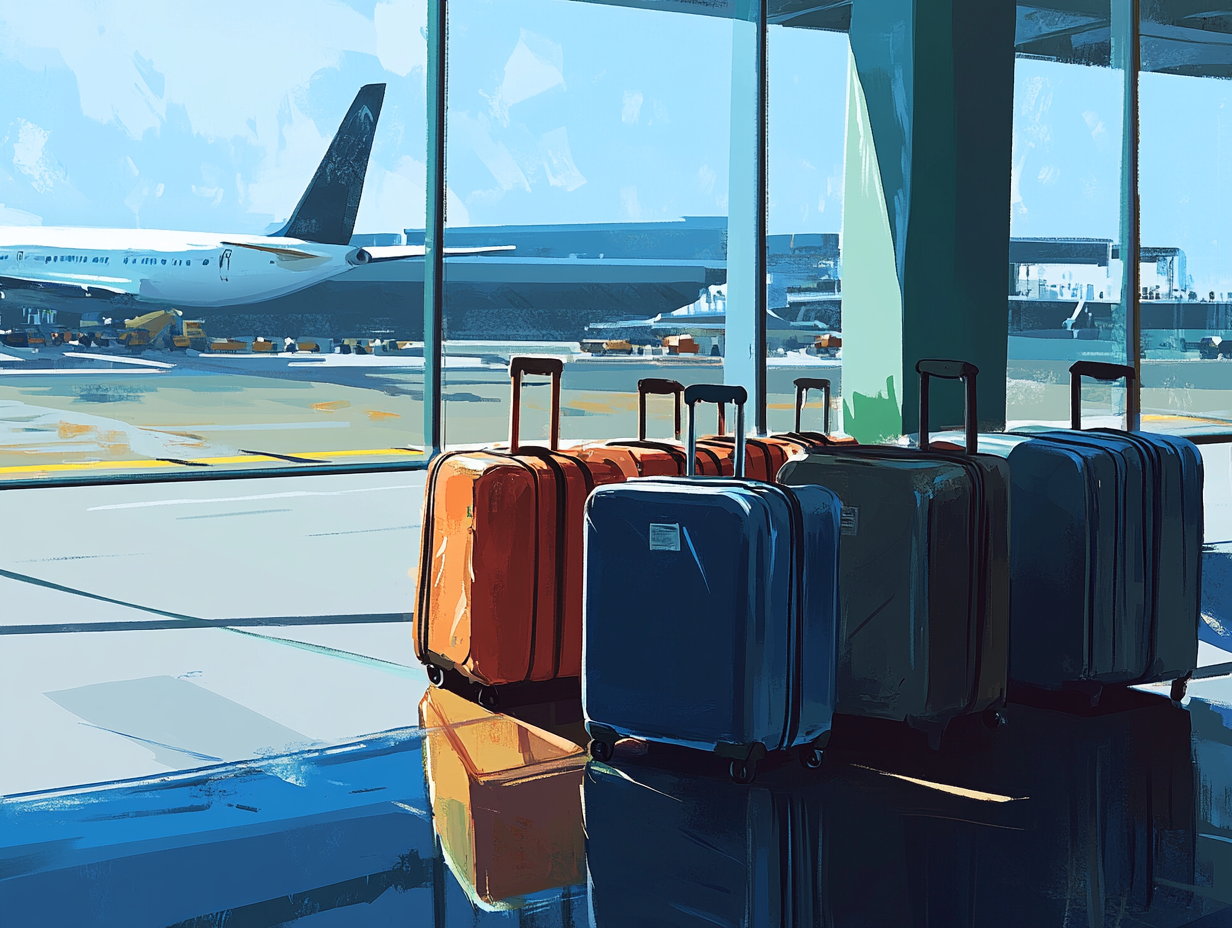- Apple AirTag geolocation accepted by more airlines.
- Help for issues with lost or delayed luggage.
With the new year now in full swing (Western and Chinese), many in the technology industry are marking the upcoming months in their calendars with the industry events they’ll be hoping to attend. And there may even be the odd holiday or two pencilled-in, for the lucky.
But any travel, especially to foreign climes, comes with the threat of lost baggage. According to Sod’s Law, the bag that goes missing contains the one item that’s absolutely essential to the trip, so getting your luggage back quickly can make the difference between a successful trip and a nightmare of bureaucracy and delay.
As of iOS 18.2, Apple AirTags owners will benefit from a new feature that helps travellers locate those items that either they, or the airline, have managed to misplace.
‘Share Item Location’ is a new feature for AirTags that lets travellers send location data to a third-party, comprising of a link to the precise whereabouts of their AirTag-ged item.
Apple’s SVP of Services, Eddy Cue, describes the feature as a relatively simple combination of Apple’s ‘Find My’ technology and AirTags. Sharing the latest location of a tagged bag is as simple as tapping a button.
Any ensuing re-uniting of frazzled passenger and suitcase is all dependent, however, on whether the airline or carrier in question will accept the information. Many airlines in the past have been resistant to offers of help from distressed travellers, preferring to ignore evidence presented to them fortissimo in Arrivals halls by irate and increasingly disbelieving travellers.
That’s about to change, thankfully. Seventeen airlines have said that they will now accept geolocation data presented to them by the Find My AirTag facility (see below for a full list of participating organisations). Travellers armed with an iPhone Xs (or later) running iOS 18.2, and with suitably tagged luggage, should now find that retrieving their belongings gets a whole lot easier.
The shared location will become unavailable to third-parties as soon as the owner is reunited with their bag, and the information will automatically expire from Apple’s servers after seven days. The user can also revoke access to geolocation data at any time.
Lost cause
Fewer than 1% of luggage is misplaced or delayed each year by airlines worldwide, but the effectiveness of baggage tracking does vary between airlines and locations. If you’re travelling with a tiny airline in far-flung places, you’re more likely to lose an item than, for instance, during a short domestic hop with a major carrier.
Each airline has its own baggage tracking technology, as does each airport, and so travellers are subject to the internal efficiencies of at least two third-parties, plus any misfiring of the disparate systems’ integration. All parties in the temporary chain-of-ownership for each item are subject to stringent legislation pretty much everywhere, rules that have security and safety at their heart – the knowledge of item’s owner, their embarkation and deplaning points, plus any layovers, means incidents of smuggling or terrorism are much less likely.
The technology used by carriers and airports ranges from the manual checking of luggage labels and a clipboard, to RFC tag scanning on a per-item basis, to mass-scanning of RFC tags by large, static scanning machines capable of reading bag IDs by the palette-load.
As anyone in the technology industry is aware, hardware and software systems are never 100% reliable, but to give the air passenger industry its due, the incidence of lost bags is much lower than in the past. That’s down in part to the maturity of the RFC stack, and no doubt that passengers’ expressions of disapproval can be easily broadcast online.
Shiny thing make it better
The acceptance by over 15 airlines of AirTag data will at least make passengers feel better assured that they can quickly retrieve their luggage in the unlikely event of a mishap. But given the necessary constraints of airlines’ due process, locating and retrieving missing items may not necessarily be any faster. That’s no bad thing, given that the major carriers are responsible for both the luggage and the safety of millions of passengers each year.
There’s also the issue that AirTags’ geolocation capability relies on the proximity of suitably-equipped Apple kit that can pick up on a Tag’s presence. If an item of luggage ends up somewhere very remote, or where people and systems on-site are very Android-y, the $30 AirTag is but an expensive luggage charm.
[Airlines accepting AirTag tracking are: Aer Lingus, Air Canada, Air New Zealand, Austrian Airlines, British Airways, Brussels Airlines, Delta Air Lines, Eurowings, Iberia, KLM Royal Dutch Airlines, Lufthansa, Qantas, Singapore Airlines, Swiss International Air Lines, Turkish Airlines, United Airlines, Virgin Atlantic, and Vueling.]






